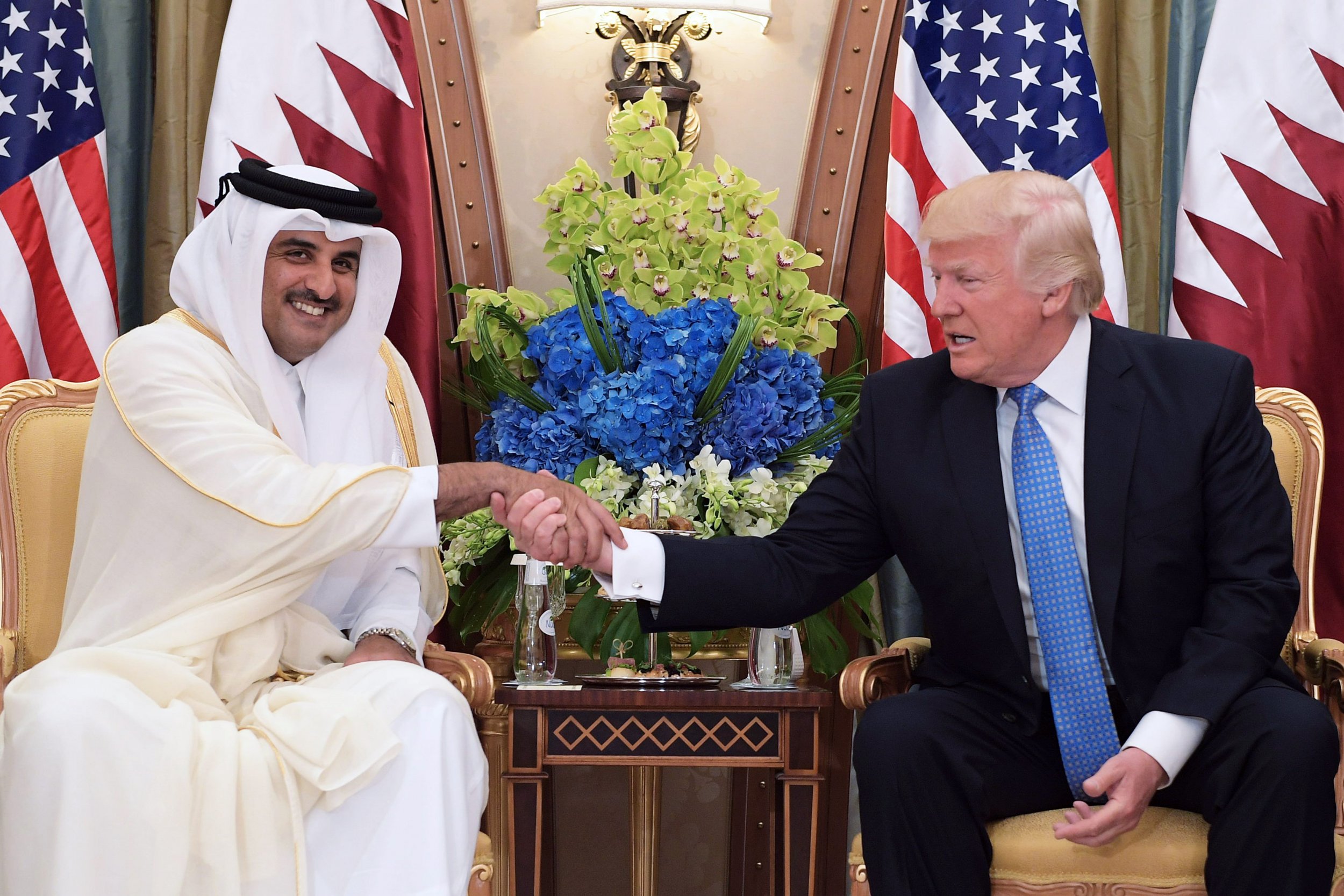
Though reports Tuesday portrayed President Donald Trump as a purveyor of peace in the Gulf crisis between Saudi Arabia and the United Arab Emirates (UAE) on one side and Qatar on the other, officials familiar with the situation said the president had not played the role reports credited him with.
Two people familiar with the U.S. President's discussions on the Gulf crisis told Bloomberg that he warned Saudi and UAE leaders off taking military action to remove the Qatari monarchy because it could set off a crisis across the Middle East, one that would only boost the aspirations of Iran.
But a U.S. official, not authorized to comment on the matter publicly, speaking to Newsweek on condition of anonymity, on Thursday said that Trump did not take such actions. "The President did not discuss military action with our Gulf partners," the official said. "The bottom line here is that the assertion in the Bloomberg story is not true."
A spokesperson from the UAE embassy in London declined to comment, referring Newsweek to previous speeches from Emirati officials. The UAE and the Sunni allies party to the blockade against Qatar have never publicly threatened the use of military action against their tiny, oil-rich neighbor.
In an address at London's Chatham House on July 17, the UAE's Minister of State for Foreign Affairs, Dr. Anwar bin Mohammed Gargash, said that the countries would only exercise diplomatic and economic pressure against the Gulf state for it to change its ways.
"First, diplomacy remains our only path. We said, early on, that we would not escalate beyond what we consider sovereign measures granted to us by international law," he said.
A joint statement released by the UAE and its Sunni allies on September 8 said that it has not at any point considered military action against Qatar, after Kuwait appeared to suggest that its mediation had prevented conflict on the Gulf. "The Quartet [Saudi Arabia, UAE, Bahrain and Egypt] regrets what the Emir of Kuwait said about the mediation succeeding in preventing a military intervention. [The Quartet] stresses that the military option was never—and never will be—an option in any way," the statement read.
Alongside Kuwait, Trump has pledged to mediate the crisis that has seen the quartet of Sunni allies cut diplomatic and transport ties with the Gulf state over its alleged support of terrorism.
Comments attributed to Qatar's Emir Sheikh Tamim bin Hamad al-Thani published on the state news agency's website also provoked outrage. The controversial statement criticized the Trump administration and praised Israel and Iran, though Qatar said that the agency's website was hacked. The Washington Post has reported that the U.S. has evidence that the UAE was behind the hack, a claim that the Emiratis deny.
In reaction, the quartet issued a list of 13 demands to Qatar to resolve the crisis, including denouncing extremist groups that it hosts in the country, such as the Taliban and Palestinian militant group Hamas. Qatar says it only hosts such groups to promote dialogue. The Taliban has an embassy in Doha.
Trump's most recent public comments on the crisis came on Tuesday in New York where he met al-Thani on the sidelines of the United Nations General Assembly.
"We are right now in a situation where we're trying to solve a problem in the Middle East. And I think we'll get it solved, I have a very strong feeling that it will be solved pretty quickly," Trump said.
Qatar is a strategic ally of the U.S., with the largest American base in the region stationed in the country, which it uses to fly sorties against the Islamic State militant group (ISIS).
Uncommon Knowledge
Newsweek is committed to challenging conventional wisdom and finding connections in the search for common ground.
Newsweek is committed to challenging conventional wisdom and finding connections in the search for common ground.
About the writer
Jack is International Security and Terrorism Correspondent for Newsweek.
Email: j.moore@newsweek.com
Encrypted email: jfxm@protonmail.com
Available on Whatsapp, Signal, Wickr, Telegram, Viber.
Twitter: @JFXM
Instagram: Read more
To read how Newsweek uses AI as a newsroom tool, Click here.








